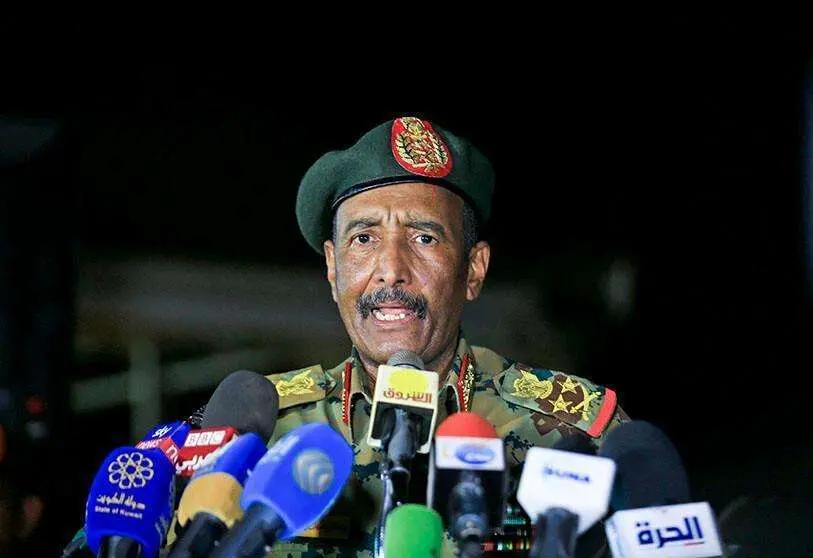Sudan: military claims to relinquish power to calm protests

General al-Burhan, leader of the military coup leaders who overthrew Hamdok's transitional government in October 2021, said on television on Monday (4 July) that the military would step aside and abandon negotiations with the "tripartite mechanism", leaving civilian political forces as interlocutors with international bodies.
Al-Burhan said the political parties, led by the Forces for Freedom and Change (FFC), would be the only ones to deal with the United Nations, the African Union and the Intergovernmental Authority on Development to form a transitional political authority.

Since the overthrow of dictator Omar Bashir in 2019, Sudan has been in a period of constant instability that has gone through several phases. This is the second time that al-Burhan has tried to engage with civilians. After the October coup, the military tried to restore civilian leader Hamdok as head of a transitional junta under military supervision. Hamdok refused to be part of this junta and left his post within days.
Al-Burhan's televised announcement came five days after mass protests in Sudan's capital, Khartoum, during which clashes erupted between demonstrators and law enforcement, leaving at least 10 people dead. forces, leaving at least 10 dead and hundreds injured.
According to Al-Burhan's statement, once the new civilian transitional authority is in place, the military-occupied Sovereign Council would be dissolved and a new Supreme Council of the Armed Forces would be formed. Through this new body, the military would maintain oversight over the transition process and the civilian authority. According to local sources, the Supreme Council of the Armed Forces would exercise almost total control over Sudan's international relations, security and defence issues and eventually also control over the National Bank of Sudan. The latter power is essential to keep the noose around the country's political neck.

Activists such as Hamid Khalafallah, a member of the opposition to the military regime, denounce that this military control over the country's economy, which is not new in Sudan's history, gives too much power to the military over the political transition.
"Will Al-Burhan be at the head of this new Supreme Council?" asks Khalafallah sceptically. "What powers will he really have? The devil is in the details", concludes the Sudanese activist. For Khalafallah, however, these changes have one positive detail: the protests of the Sudanese people have forced a change.
Yet according to Khalafallah, this gesture by the military serves another purpose: to divide the political parties. There was no unified response from the coalitions to al-Burhan's outstretched hand, which weakens the civilian side in favour of the military.

The outcome confirms the predictions of the UN Special Envoy to Sudan, Volker Perthes of Germany, who a week earlier told local media that the military and political groups were "80% of reaching an agreement" to unblock the political situation. Perthes also added that the military would not be completely removed from power with this agreement. The UN special envoy was on a trip to the Darfur region to assess the situation in the troubled area, according to the official version of his office.
During his visit, he met with the military leader Mohamed "Hemedti" Hamdan Dagalo, leader of the Rapid Action Forces and member of the ruling military junta, although the details of the meeting are not yet known. The UN mission did not comment on al-Burhan's statement through its media.
Al-Burhan also travelled before making his announcement on television. According to information revealed by Abbas Mohamed Ibrahim, editor of the daily Al-Jamaheer, the military leader arrived in Cairo the day before his announcement, reportedly to meet with Egyptian President Al-Sisi. Prior to the October coup, Al-Burhan also went to Al-Sisi to get his approval for Hamdok's overthrow. It is understood that the military is once again counting on Egypt's support in this new step to unblock Sudanese politics and calm the protests.










